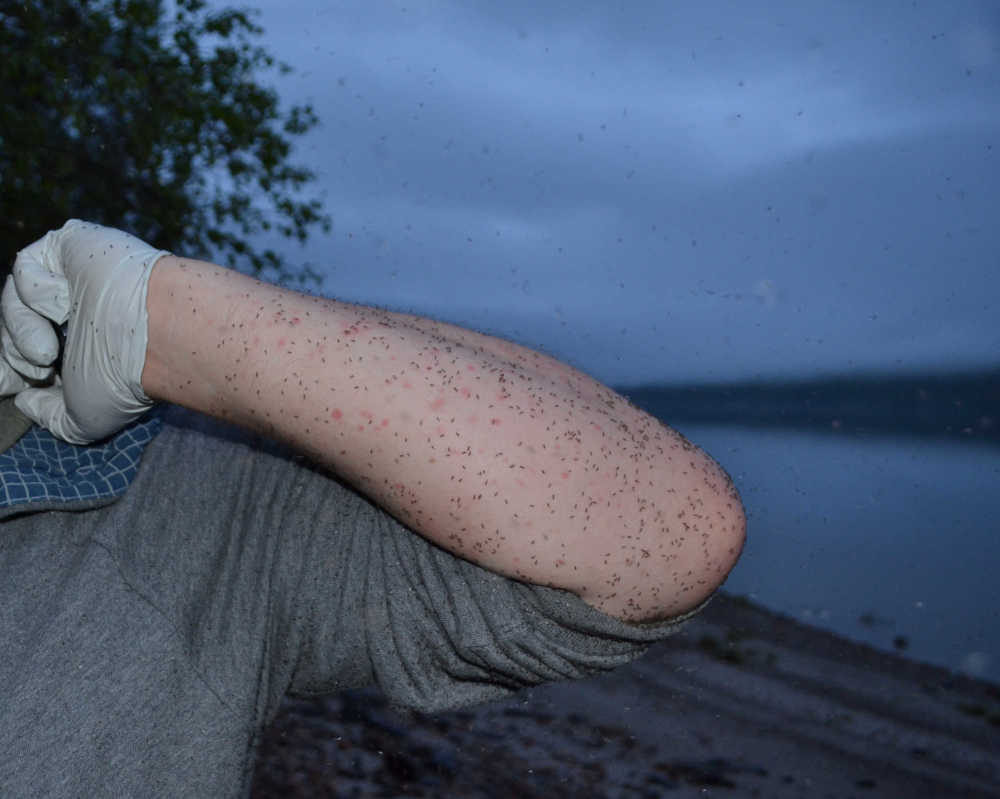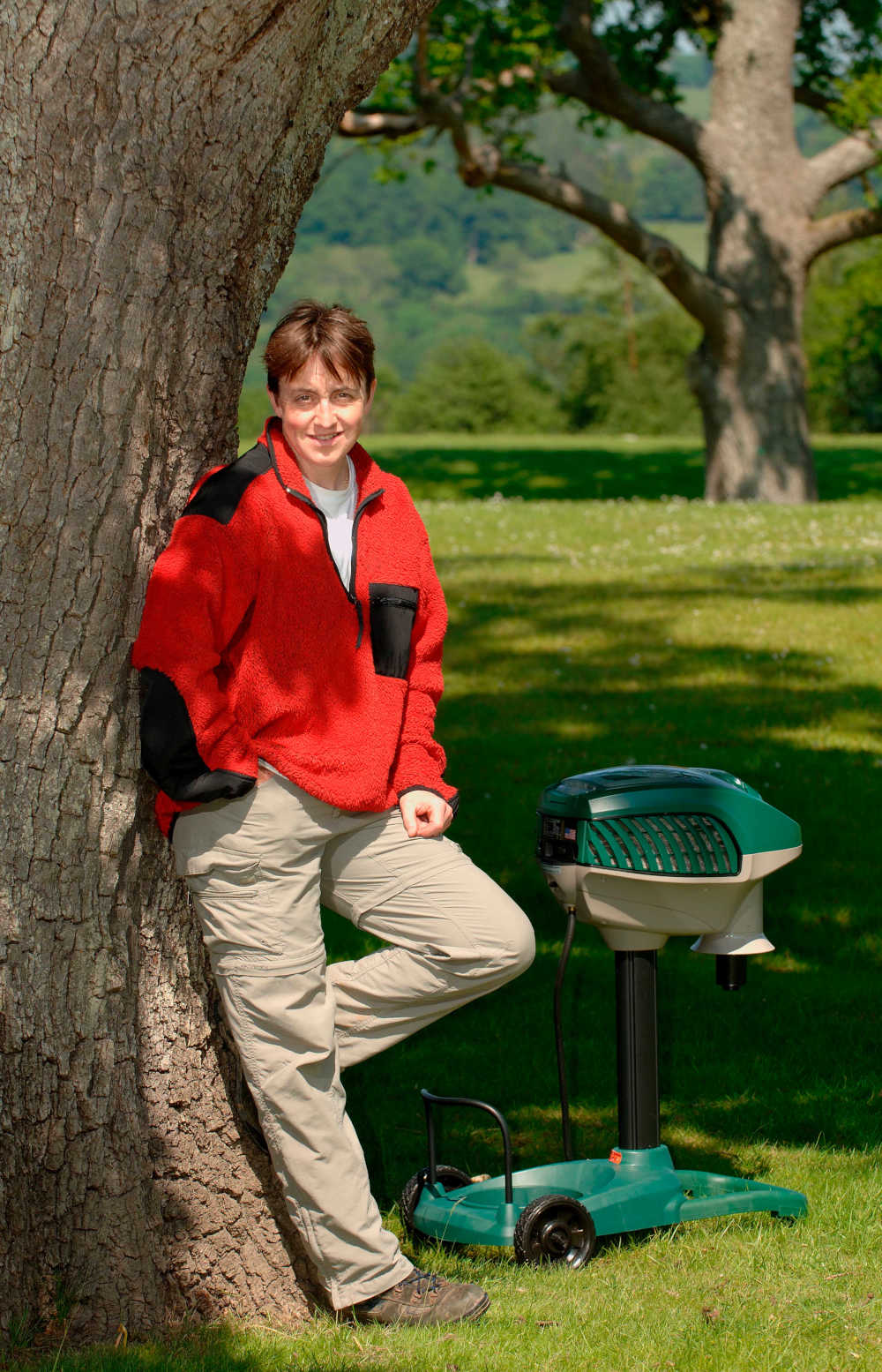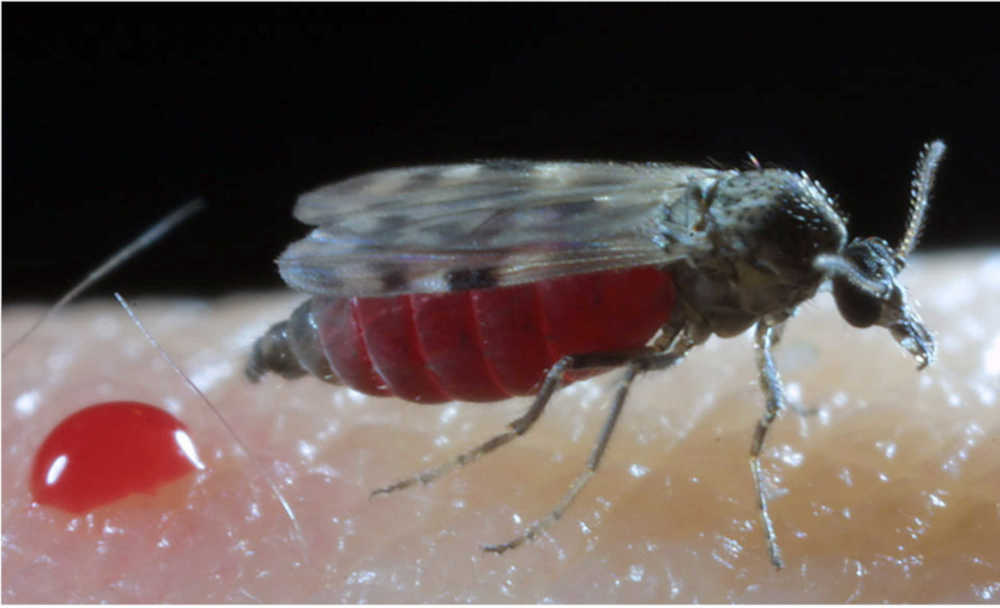THE NUMBER of pesky midges buzzing around Britain is set to be lower than last year, according to the experts.
Dr Alison Blackwell, who runs the Scottish Midge Forecast, launched the service last weekend, predicting reduced numbers for this time of year.
Dr Blackwell says the recent hot temperatures have led to bad reproductive conditions for the midges, meaning less than usual will appear over the next few weeks.
However, she added weather conditions ahead are “perfect” for them and they are expected to make a comeback in this “typical midge year”.
Dr Blackwell has run an online forecast for the past ten years which gauges the numbers of midges at various sites across Scotland, which launched on the weekend.
But, the expert of Dundee-based APS Biocontrol Ltd was hesitant to provide more details on what to expect due to the coronavirus lockdown reducing the amount of field work her team can carry out.

The website maps shows relatively low numbers of midges for Scotland, with only one area being advised to use insect repellent.
Speaking today, Dr Blackwell said: “The first generation looks like it will not be as big as normally seen and the big peak may be reduced to an extent.
“Females lay two or three batches of eggs that normally make a second generation about six weeks later.
“This would mean the second generation would be smaller. Midges have a high mortality rate as the number of biting from midges is half the number that emerged.
“The numbers fall quickly with hot, dry weather. Midges only have a 2mm wingspan so they become dehydrated quickly.

“They like warmer and damper summers.
“We are in a typical midge year. We know what’s going on out there as we have our own remote weather system and it’s based on the weather reports.
“But, we are relying on members of the public to get their catch data so we can confirm the number of midges.
Dr Blackwell and her team have previously calculated the total number of midges in the Highlands and Islands to be around 139 billion.
She added that this number could go up in the long term.
Dr Blackwell explained: “It will be interesting to see what happens.
“If Global warming continues the way as it is predicted a third generation of midges will become more and more -quite possibly.
“Usually there is a third generation but it is so small it isn’t noticeable.”
Scotland’s unpredictable weather in 2019 took the bite out of midges with numbers down by 15 percent compared to the previous year.
It’s estimated Scottish tourism loses about £286 million-a -year due to the vicious critters.
Dr Blackwell and her team are now appealing for anyone trapping midges to send them data to [email protected].

